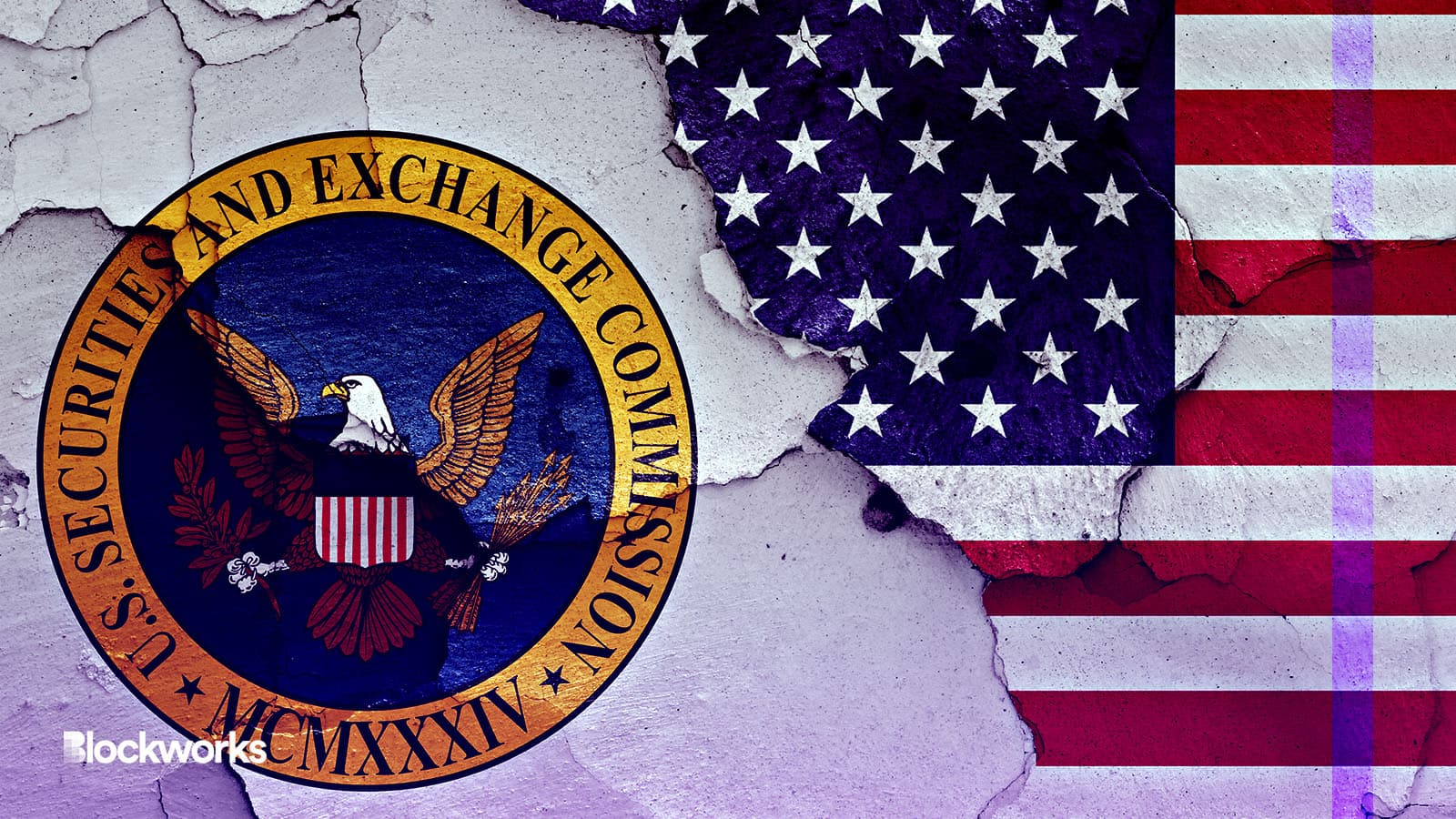Fresh amicus briefs filed in support of SEC in Coinbase suit
Briefs challenge Coinbase’s claim that major questions doctrine should limit the SEC’s authority on the nature of securities.

danielo/Shutterstock, modified by Blockworks
In the high-profile legal showdown between the US Securities and Exchange Commission and leading crypto exchange Coinbase, support for the regulator is gaining momentum.
Two amicus briefs filed Tuesday seemingly echoed the SEC’s primary stance: Digital assets should be classified as securities and thus fall within its bounds to police them.
That view has previously led many in the crypto industry to question the regulatory overreach and its implications for the industry’s future.
In a detailed brief from the North American Securities Administrators Association (NASAA), the group highlighted that platforms like Coinbase operate akin to securities exchanges but lack the necessary regulatory scrutiny, posing potential risks to investors.
NASAA is an organization of securities regulators in the US, Canada and Mexico, seemingly tasked with protecting investors and promoting efficient securities markets.
The brief appeared to double down on the notion traditional securities laws should automatically extend to the realm of crypto.
“Digital assets with characteristics typical of securities offer investors the same promise of a return and carry the same risks that led to the enactment of the federal securities laws,” NASAA said.
The SEC is suing Coinbase based on allegations the exchange violated the Securities Exchange Act of 1934 and the Securities Act of 1933. The case’s eventual verdict could set a precedent, shaping the US’s regulatory approach to digital assets in the coming years.
The primary contention is that Coinbase acted as an unregistered securities exchange, broker, and clearing agency, while also offering and selling unregistered securities.
Central to these allegations is the SEC’s position that Coinbase’s staking program and several of the digital assets traded on its platform qualify as “investment contracts,” making them subject to federal securities laws.
As such, these assets fall squarely under the purview of federal securities laws, NASAA said.
This perspective is consistent with not only the SEC’s public stance but also resonates with positions held by state securities regulators and the broader understanding of several digital asset issuers, NASAA argued.
While digital assets often dominate headlines, given their volatile nature and the emerging technology backing them, their relative scale in the expansive US economy remains modest, the group said in their brief.
Second brief in favor of the SEC
Further amplifying the regulatory debate, a separate brief was filed on the same day by Professor Todd Phillips of the J. Mack Robinson College of Business at Georgia State University and Beau Baumann, a Doctoral candidate at Yale Law School.
Leveraging their expertise in financial regulations and administrative law, the scholars extended their support to the SEC’s stance.
Their argument revolves around the major questions doctrine’s historical significance and boundaries.
The “major questions doctrine” is a US legal rule stating that Congress must clearly specify if it wants an agency to have power over significant economic or political matters, rather than implying such authority in law.
Highlighting recent Supreme Court verdicts, Phillips and Baumann emphasize that any attempt by Coinbase to redefine or narrow down the doctrine’s interpretation might be overstepping its bounds.
Both NASAA and the scholars’ brief converge on several arguments including how Coinbase’s perspective potentially misconstrues the doctrine’s scope as outlined in recent court decisions.
They both acknowledged Congress’s definition of “security” was intentionally broad, enabling it to encapsulate a wide range of investment forms effectively when it was drummed up in the 1930s.
The definition was designed with the foresight of adapting to the evolving financial ecosystem following the stock market crash of 1929, or so the SEC’s argument goes.
Both briefs also assert the necessity of agencies like the SEC applying existing laws to emerging financial situations. Waiting for explicit congressional directives in fast-paced markets might hinder regulatory efficacy, both parties said.
Updated Oct. 11, 2023 at 9:40 pm ET: This article incorrectly named two former SEC alumni as having filed the NASAA amicus brief. The headline and body have been changed to reflect this.
Get the news in your inbox. Explore Blockworks newsletters:
- The Breakdown: Decoding crypto and the markets. Daily.
- 0xResearch: Alpha in your inbox. Think like an analyst.






